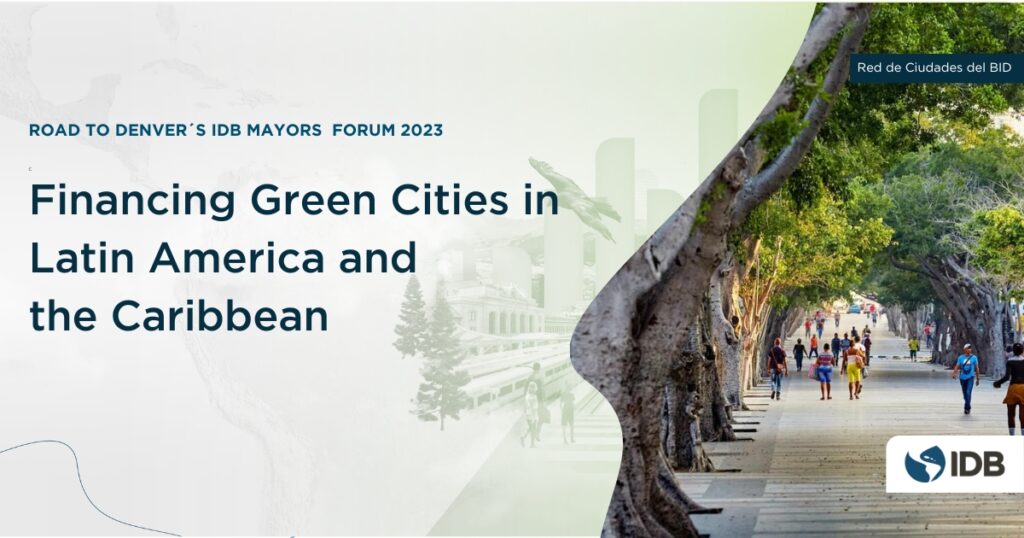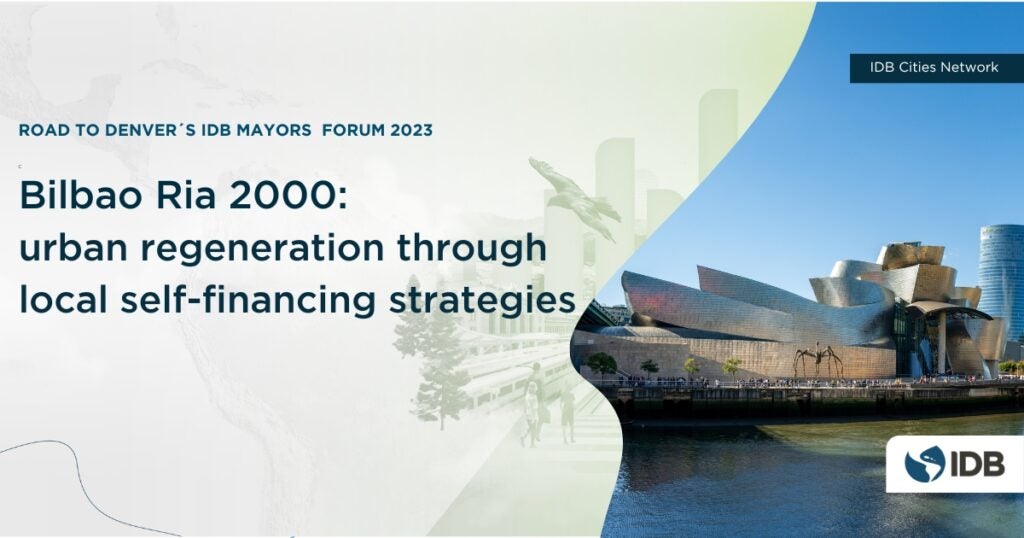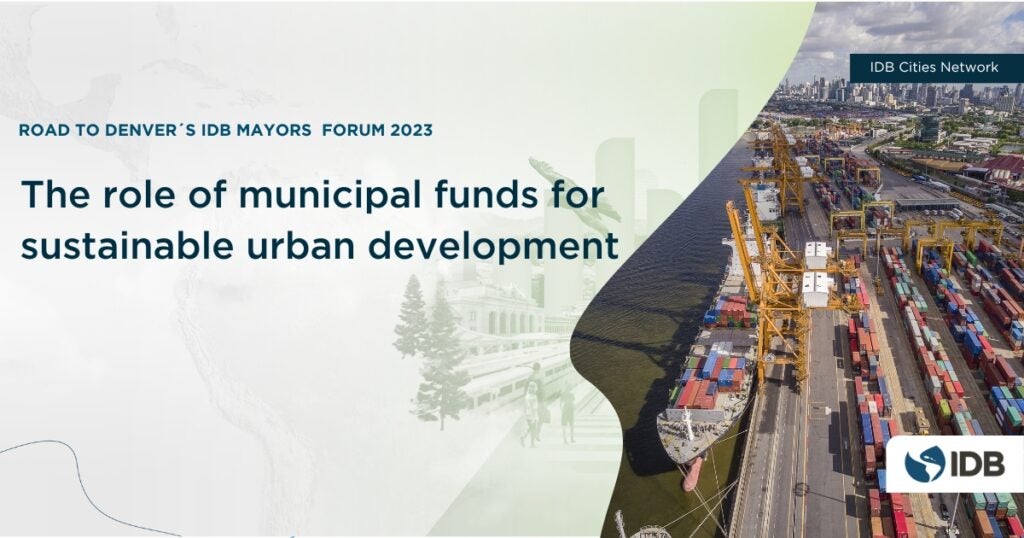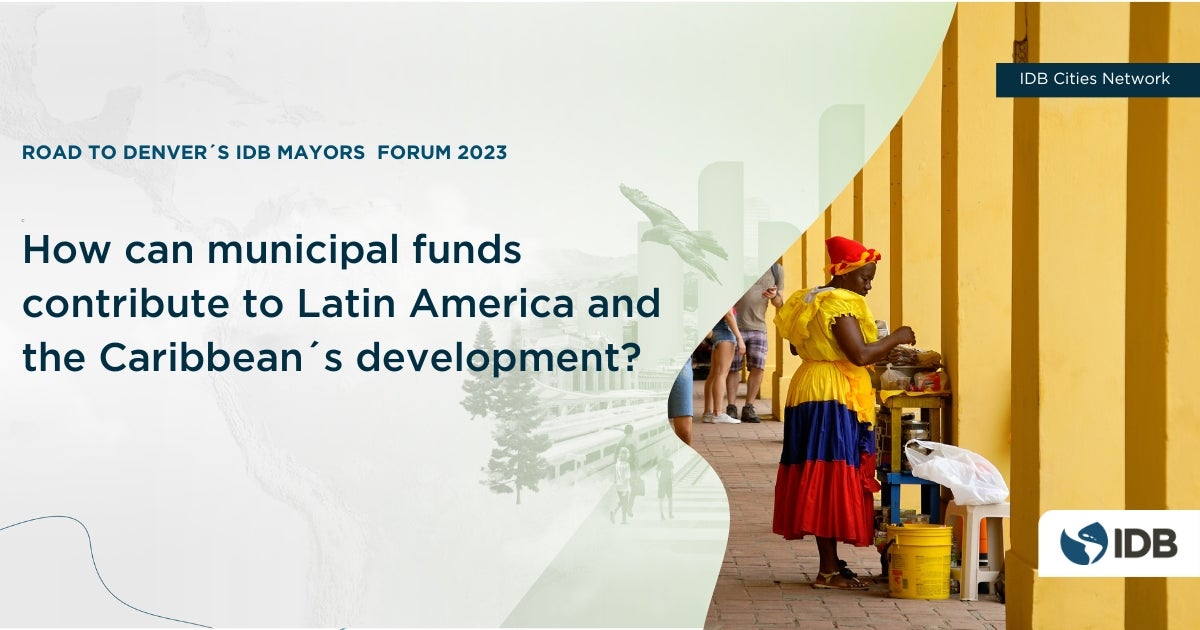Este artículo está también disponible en / This post is also available in: Spanish
Latin America and the Caribbean (LAC) has more than 17,500 subnational governments that are responsible for approximately 25% of total public administration spending. Among subnational governments (provinces, municipalities, etc.), cities are closest to the citizens, and therefore, they ar responsible to cover their most basic needs. In addition, cities are called to lead the action against climate change and will be the driving force for the countries of the region to comply with the Paris Agreements.
In this context, this year’s IDB Mayors Forum, which will be held in Denver on April 26th, seeks to support local governments in LAC to improve cities’ access to diversified sources of financing, beyond the transfers they receive from central governments. The goal is to strengthen municipal leadership so that they can overcome the enormous challenges they face, which they will not be able to meet without the involvement and leadership of their mayors.
For this reason, in the previous article in this series about municipal financing we explained what municipal funds are and how they work. Today we dedicate this blog post to show how municipal funds can play a crucial role in the region’s development by mobilizing financial resources and enhancing the technical capacity of local governments. Don’t miss it!
Ways in which municipal funds can contribute to development:
In today’s article, we will explain two of the most used ways in which municipal funds can serve to develop cities in our region:
1. Mobilizing financial resources:
Municipal funds have the potential to attract and channel public and private resources to priority municipal projects in areas such as infrastructure, housing, energy, water and sanitation, and urban development. Mobilizing these resources allows local governments to invest in projects that promote sustainable development and improve the quality of life of their citizens. By attracting public and private investment, municipal funds can contribute significantly to closing the infrastructure investment gap facing the region, estimated at approximately US$150 billion per year.
One example can be found in FINDETER, a Colombian state-owned financial entity created in 1989 to promote the sustainable development of regions and municipalities. Between 2010 and 2019 it approved credits for a cumulative amount of more than US$5 billion.
2. Strengthening municipal technical capacity:
In addition to mobilizing financial resources, municipal funds can improve the technical capacity of local governments in various areas, including:
- Formulation of municipal plans: municipal funds can provide technical assistance and support in the development of land use plans and capital investment plans. Thus, they ensure that projects are aligned with local needs and development priorities.
- Project implementation: they can also help local governments improve their project implementation skills by providing training and support in project management, contracting and supervision of works, and evaluation of results and impact.
- Fiscal management and local tax collection: municipal funds can support local governments in strengthening their fiscal skills and local tax collection. This, in turn, will allow them to obtain more resources to invest in development projects. They can also serve as an incentive to increase the collection of local taxes and fees if access to the fund’s resources is made conditional on such collection.
Five lessons learned:
Based on international experience, we summarize below five lessons learned about the operation of municipal funds, which we hope will be useful for LAC cities embarking on their implementation:
- Clarity in objectives and priorities: it is essential to establish clear objectives and priorities for municipal funds, ensuring that resources are allocated efficiently and effectively to projects that contribute to the sustainable development of communities.
- Training and technical assistance: providing training and technical assistance to municipalities in project planning, implementation and monitoring can improve the efficiency and quality of investments.
- Transparency and accountability: municipal funds should ensure transparency in resource allocation and accountability in project implementation, fostering public trust and citizen participation.
- Citizen participation: involving the community in the design, planning and implementation of projects promotes transparency and accountability, and can help ensure that projects are more aligned with local needs and expectations.
- Sustainability: to ensure long-term impact, municipal funds should promote projects that are economically, environmentally, and socially sustainable, and that contribute to the sustainable development of local communities over time.
The IDB’s Housing and Urban Development Division will be happy to advise cities in the region interested in developing municipal funds in their municipalities. Together we can achieve climate goals and make our cities climate resilient. Next week we will be back to share a new article where we will discuss examples of public-private partnerships in the region.
Related content:








Buen blog! Eguino y Chona (2021) discuten en detalle la viabilidad fiscal y financiera de los municcipios en ciudades capitales (metropolitanas), incluynedo la posibilidad de crear fondos municipales de inversion.